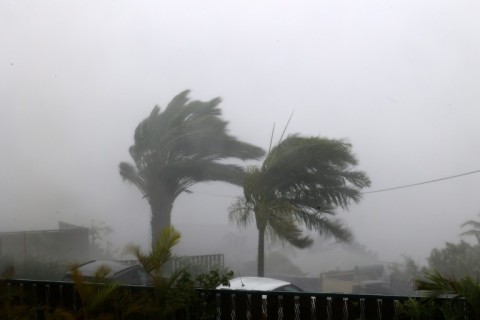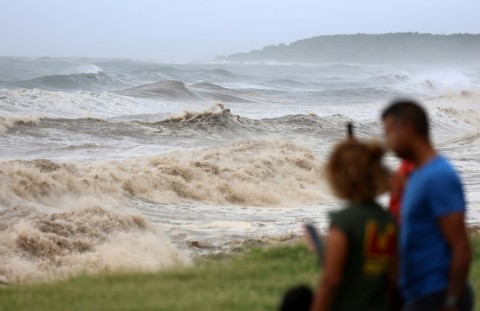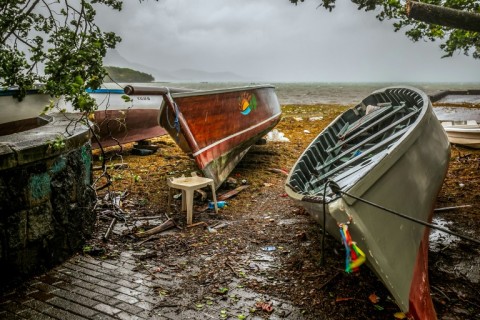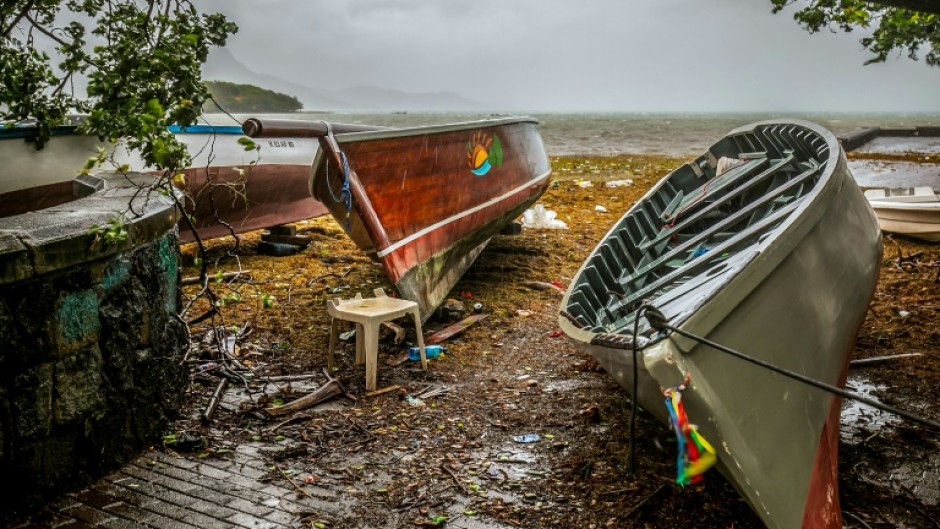REUNION - Hundreds of thousands of people on France's Indian Ocean island of Reunion hunkered down in their homes under a strict lockdown on Monday as a devastating storm that has already left one dead ripped along its north coast.
Cyclone Belal hit Reunion, one of France's overseas territories that span the globe from the Caribbean to the Pacific, moving in from the northwest packing "extreme winds", according to France's national weather service, Meteo-France.
"The eye of the storm is passing along the northern and northeastern coast this afternoon," it said in its latest public bulletin.
Belal was not, however, expected to become an intense tropical cyclone, or cause devastation further inland, contrary to earlier fears.
"We're by no means done with this storm, but it's not reaching cataclysmic levels," said prefect Jerome Filippini, the island's top Paris-appointed official.
"We can see the light at the end of the tunnel," Filippini said, "if Belal is good enough not to bring any bad surprises by tonight (Monday) or tomorrow morning."
- 'Red' alert -
Initial damage had been moderate but "one homeless person who had not taken shelter" died as a result of the storm in the western settlement of Saint Gilles, the prefecture said.
In preparation for gusty winds authorities initially hoisted the violet-level alert, indicating imminent danger, at 6:00 am (0200 GMT), putting all 870,000 inhabitants, including the emergency services, on strict lockdown.
"All circulation is formally prohibited for any reason whatsoever," an early official statement said.
But later Monday, the alert level was downgraded to "red", a move that allowed security and rescue forces to move around, without however lifting the lockdown for the general population.

Winds were expected to reach 160 km/h (100 miles/h) in Reunion's highlands, much less than the 250 km/h initially forecast, and 140 km/h on the northern coast.
Celine Jauffret at Meteo France predicted that the eye of the storm would move away from Reunion by the end of the afternoon.
Heavy rainfall was expected until then, she said.
In Saint-Paul, a town of 100,000 in the west of the island, water levels were beginning to drop after flooding in some neighbourhoods.
Power cuts had initially prevented pumps from working, but once the alert level went down, emergency services were able to get them to operate, Saint-Paul's deputy mayor Sebastien Guyon told AFP. "This helped a lot," he said.
The weather service said there would be "a clear improvement" after nightfall.
Filippini said he hoped the red alert level could be lifted by Tuesday morning, a move that would allow people to leave their homes again.
Reunion, known as La Reunion in French, is located east of Madagascar and has a population of almost 900,000.
- 'Stay at home' -
Authorities urged islanders to stock up on food and water and stay indoors for 36 hours. They were told not to leave home "for any reason", unplug all devices, not use tap water and only use the telephone for an emergency.

Many balconies and gardens had been cleared of any objects that could be carried away or broken, and shopkeepers took in removable signs.
"We are not going to play heroes, we were told to stay at home," Jules Dafreville, who lives in the capital Saint-Denis, said on Sunday.
The island's main airport said it was suspending flight operations.
French President Emmanuel Macron took to social media on Sunday to urge residents to stay indoors.
"Be careful, stay at home," he said on X, formerly Twitter.
Le Port and La Possession, two towns in the northwest of the island, were spared any significant damage, authorities said, but swollen rivers carried much debris.

Some 100,000 homes were without electricity in the afternoon, and many had their water supply or fixed-line telephone services cut.
Weather services in Mauritius, some 200 kilometres (125 miles) to the northeast, issued a level 3 weather alert, the second-highest possible, saying there was a "direct threat" to the island from Belal which was "approaching dangerously".
The last major cyclone to hit Reunion was in 2014.
In 1989, cyclone Firinga destroyed hundreds of homes and dumped record-breaking rain.
By Mahdia Benhamla

